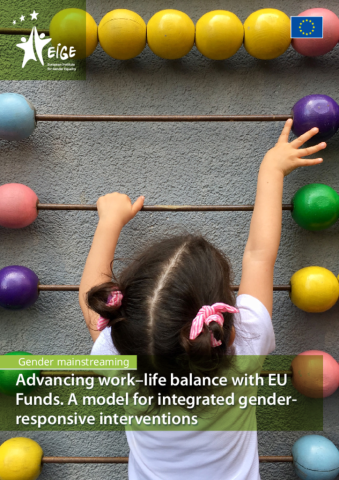This report proposes a model to advance gender equality in Member States by transforming roles and responsibilities in care work. The model supports innovative practice and gender analysis to realise the potential of the European Social Fund and the European Regional Development Fund in the promotion of work–life balance in the EU.
This model encourages policymakers, programme managers and project designers to take an expansive view of care. This means considering not only childcare, but also care for older people or persons with disabilities and, more broadly, the different dimensions of social care. The aim is for the model to be used to advance gender equality in Member States by transforming roles and responsibilities both in formal and informal care structures.
The guidance and practical model set out in this document draws on three levers – legislative, policy and financial. It intends to support the formulation of programmes during the next round of the ESF+ and ERDF.
